
After 50 years of unification, Vietnam has gone from having to import food to becoming the third largest rice exporter in the world and one of the leading exporters of technology products such as smartphones, televisions, laptops... something that no one dared to dream of 20 years ago.
Look
Even General Secretary To Lam once admitted that despite great achievements, the content and value of Vietnamese products in those export items are very low.
While developed countries in the world are making rapid progress in terms of technology, our economy still relies mainly on assembly, with labor contributing the most, while suffering from environmental pollution, industrial waste, and infrastructure overload.
This situation has lasted for many years, many discussions, opinions, many solutions have been proposed but the problem has not been effectively solved.
Technology development in Vietnam is still small and fragmented, lacking a system of harmoniously developing technology companies. It can be said that Vietnam lacks an ecosystem including a legal system and policies to support technology companies, especially startups, as well as an adaptive training system.
Particularly important: Vietnam still lacks investment funds for research and development. In short, we lack an economy with the entrepreneurial spirit that has been the driving force for many dynamic economies in the world.
When it comes to the startup economy, everyone knows that many high-tech giants such as Apple, Nvidia, Microsoft, Google, Amazon, Facebook... started out as startups with just a few people and little capital, but they have succeeded and become innovation centers that have profoundly changed all aspects of social life around the world.
The story of Steve Jobs dropping out of school and founding Apple at the age of 21 in his parents' garage in 1976, and today Apple is the largest company in the world with a value of more than 3,000 billion USD is typical.
From 1976 until his death in 2011, Steve Jobs helped fundamentally transform seven different industries: personal computers, animation, music, phones, tablets, retail stores, and digital publishing.
His contribution to the information technology revolution was also extremely important, helping to profoundly change the lives of people on the planet.
But that achievement was not based solely on Steve Jobs' genius, but largely on the great support he received from the startup ecosystem in the startup economy he benefited from.
Looking far
The entrepreneurial spirit has existed in Europe since very early times, especially in England since the 18th century and in Germany since the 19th century. That spirit has become the way of life and thinking of many generations in the US, most typically the genius inventor Thomas Edison, Alexander Bell (inventor of the telephone), Henry Ford (car production line), or more recently the start-up companies with high-tech tycoons in their 20s and 30s, some of whom dropped out of school like Bill Gates (Microsoft), Steve Jobs (Apple) or even before graduating like Zuckerberg (Facebook), Larry Page, Sergey Brin (Google)...
According to research by Nobel Prize-winning economist Robert Solow, technological innovation, especially that generated by startups, is the greatest source of productivity growth in the United States.
U.S. Census Bureau data shows that most of the job growth in the U.S. from 1980 to 2005 came from startups under five years old. Without startups, annual employment in the U.S. during that time would have actually been negative.
Israel is also a model of entrepreneurship. Its economy has grown at an astonishing rate: GDP in 1950 was nearly 13 billion shekels (Israeli currency) to 1,300 billion shekels in 2020.
It is not just a story of national character or geopolitics, but actually a combination of many things, including the impact of government policies, as well as the entrepreneurial spirit of the people that contributed to the miracle.
For example, in 2008, venture capital funds, which invest primarily in startups, were 2.5 times larger per capita in Israel than in the United States, more than 30 times larger than in Europe, 80 times larger than in China, and 350 times larger than in India.
In absolute terms, Israel – a country of just 7.1 million people (2008) – attracted as much venture capital as the United Kingdom, with its 61 million people, and Germany and France, with their 145 million people combined. Many of the world’s leading technology companies have acquired Israeli startups to set up R&D centers in Israel…
Entrepreneurial spirit was also an important feature that turned defeated Japan after World War II into the world's second largest economy.
The story of SONY from a small company that was sensitive to semiconductor technology, quickly bought the transistor copyright from Bell Labs (USA), produced and dominated the consumer electronics market in the US, and then became the world's largest consumer electronics giant for a long time.
Or the story of Soichiro Honda, who founded the company with just 450,000 yen (about $2,200 at the time). In a 16-square-meter workshop, his 12 employees attached small engines to bicycles, turning them into motorcycles that were popular because they could carry a lot of weight and maneuver through narrow alleys in cities.
The success of those motorized bicycles paved the way for Honda to become the world's largest manufacturer of two-wheeled motor vehicles by 1959, with 400 million units. Honda's two-wheeled motor vehicles were so popular that Vietnamese people often equate Honda with motorbikes.
Why do countries successfully build such entrepreneurial economies even though startups often have high failure rates?
As in Israel, the culture and laws reflect a particular attitude: to try to bring failed entrepreneurs back into the system to use their experience, to give them a chance to start again, rather than stigmatize and marginalize them. Israel is one of the easiest places in the world to start a new company, even after going bankrupt.
Many studies show that when an entrepreneur succeeds, they may change the market, but even when they fail, they create competitive pressure on existing companies and thus stimulate positive change.

Get to work!
To become a country with a high-tech economy and escape the middle-income trap, Vietnam needs to build an economy with a "national entrepreneurial spirit", in which startups are an important component.
The first step is to build an ecosystem for such an economy, starting with enacting appropriate laws and forming public and private investment funds to support R&D for businesses, prioritizing small businesses.
The US's experience with the "Innovation for Small Businesses" fund, with only 2% of federal R&D funds, has contributed to 20% of the world's important inventions, with a number of patents larger than all universities combined; helping tens of thousands of startups succeed, creating millions of high-paying jobs, and solving many national problems.
Or like the Chinese Government's "Big Fund" since 2014 has invested tens of billions of dollars in technology companies (2014-2019: 21.8 billion dollars, 2019-2024: 29 billion dollars and recently 2025-2029: 47.5 billion dollars).
Without these funds, the recent sensational successes of Chinese startups would not have been possible. Moreover, the lesson from Israel is that startups can most effectively attract and cooperate with the world's high-tech giants...
A technology economy cannot function without a properly trained workforce. All of this requires the important role of the state, from policy making to operating and promoting the development of ecosystem elements for that economy.
A concrete example is very close to home. Since 2017, the Chinese government has set a goal of achieving major breakthroughs in "world-leading AI technologies and applications by 2025".
China's Ministry of Education has approved 440 universities to train students specializing in AI to develop a source of "AI talent" and promote the development of an ecosystem for AI technology. By 2022, China will have provided nearly half of the world's AI researchers. On January 20, 2025, China's DeepSeek Company launched an AI model that shocked the world.
DeepSeek claims its AI models use simpler chips with lower computing power, dozens of times cheaper than their US counterparts.
On January 21, 2025, China’s financial market attracted $1.3 trillion, of which $700 billion was from international investment funds transferring capital from the Indian market. It is clear that the entrepreneurial spirit has taken root and developed in China, bringing countless benefits to the country and its people.
Looking back at the achievements and the things that have not been done after 50 years, it is time to not delay any longer. Vietnam needs to build a national entrepreneurial spirit so that after only 10-15 years, Vietnam will have a dynamic economy, developing at a high speed in the world.
Science and technology - especially high technology - are the inevitable path to escape the middle-income trap and create a launching pad for "dragonization". There is no other way.
In addition to expectations for the young generation who are extremely responsive to the world of technology, the state also needs to play a very active role, being an "innovative and development-creating state" - the type that led the economies of South Korea and Taiwan to take off.
Technology is key
This is the time to act, to create a prosperous, dynamic Vietnam that is increasingly reaching out to the international arena.
Promoting the wave of startups, innovation, digital transformation and application of new technology. This is the key factor to help the private economy break through and reach international level.
There needs to be strong and effective support policies to promote private enterprises to apply technology, innovate products, and increase added value.
The State needs to create a legal sandbox for new technology fields, encouraging private enterprises to invest in pioneering fields such as artificial intelligence, blockchain, big data, e-commerce, financial technology and smart healthcare...
Implement financial support policies and tax incentives for businesses investing in research and development (R&D). Form a strong startup ecosystem, creating conditions for startups and "technology unicorns" named Vietnam to reach international standards.
General Secretary To Lam
(excerpt from "Private economic development, a lever for a prosperous Vietnam")
----------------------

Author Nguyen Trung Dan is currently a senior researcher at Corning Research and Development Center, New York, USA.
As a PhD in theoretical physics in Vietnam, Mr. Nguyen Trung Dan has worked for nearly 40 years at many international institutes in the semiconductor optical industry around the world: International Center for Theoretical Physics (Italy), Jena University (Germany), Department of Applied Physics, University of Tokyo (Japan), Hue University (Vietnam), University of Arizona (USA).
He is the main researcher and author of more than 100 scientific works in the field of optics and photonics, widely used in many universities and high-tech companies.
Source: https://tuoitre.vn/thuc-day-lan-song-khoi-nghiep-quoc-gia-20250425165600102.htm


![[Photo] Prime Ministers of Vietnam and Thailand visit the Exhibition of traditional handicraft products](https://vphoto.vietnam.vn/thumb/1200x675/vietnam/resource/IMAGE/2025/5/15/6cfcd1c23b3e4a238b7fcf93c91a65dd)

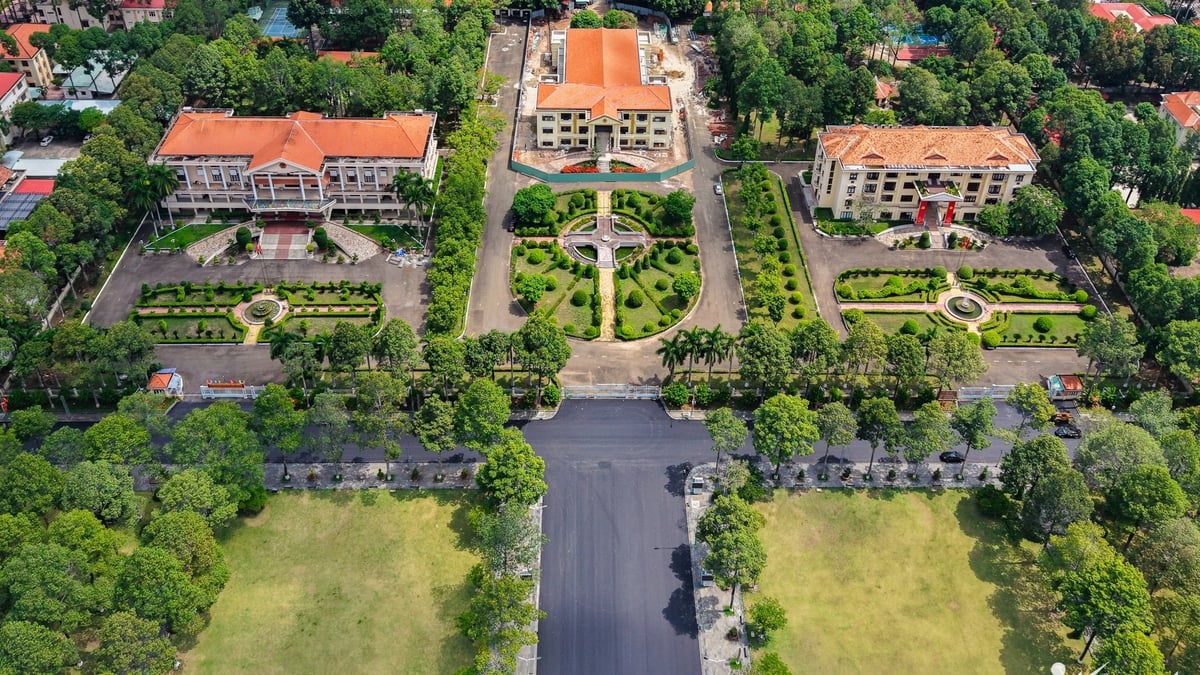





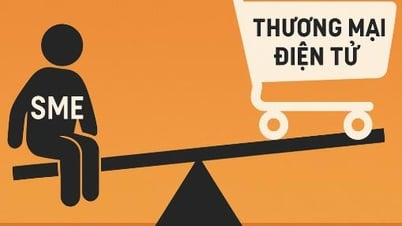

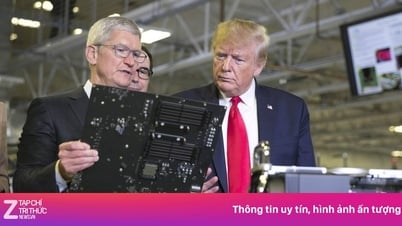















![[Photo] National Assembly Chairman Tran Thanh Man meets with Thai Prime Minister Paetongtarn Shinawatra](https://vphoto.vietnam.vn/thumb/1200x675/vietnam/resource/IMAGE/2025/5/15/e71160b1572a457395f2816d84a18b45)















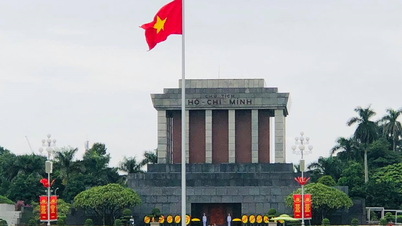


















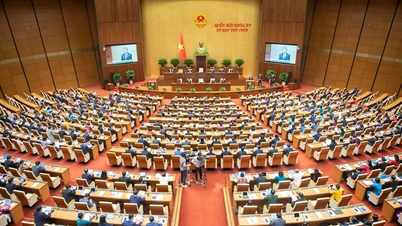












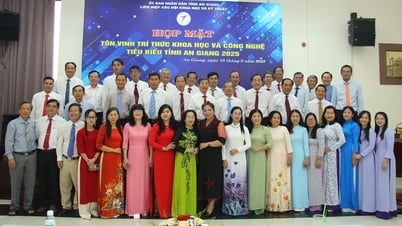
















Comment (0)